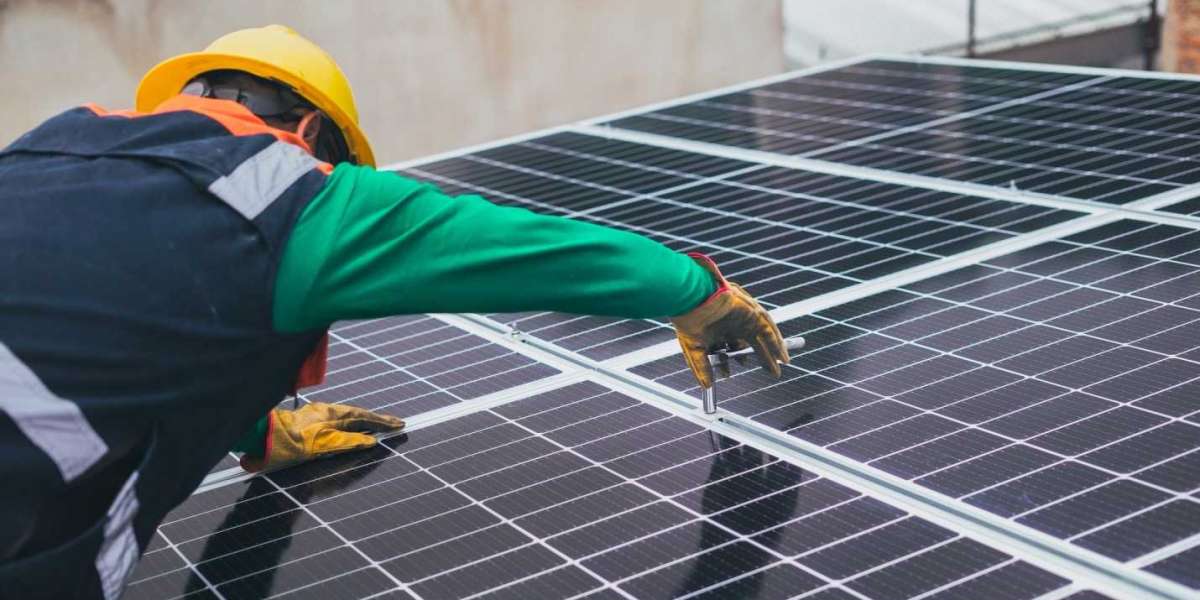The Future of Energy: Why a Solar Electric System Is a Smart Choice
A solar electric system is an excellent way to reduce energy bills while promoting sustainability. With rising electricity costs, more homeowners and businesses are switching to solar power. This clean energy source provides a reliable solution for reducing dependence on traditional power grids.
In this blog, we’ll explore how a solar system works, its benefits, and essential factors to consider before installation.
How a Solar Electric System Works
A solar electric system converts sunlight into usable electricity. It consists of solar panels, an inverter, and a battery storage system (optional). The panels capture sunlight and generate direct current (DC) electricity. The inverter then converts it into alternating current (AC), which powers homes and businesses. Excess energy can be stored in batteries or sent back to the grid for credits.
Types of Solar Systems
There are three main types of solar systems:
- Grid-Tied System: Connected to the power grid, allowing users to draw electricity when solar production is low and send excess energy back to the grid.
- Off-Grid System: Operates independently of the grid and typically includes battery storage to ensure power availability at all times.
- Hybrid System: A combination of grid-tied and off-grid systems, utilizing both battery storage and grid connectivity for maximum efficiency.
Each system type has its advantages depending on the user’s energy needs, location, and budget.
Benefits of Installing a Solar System
Lower Energy Costs
Electricity bills can be a burden, but a solar system helps reduce or even eliminate them. Once installed, solar panels generate free electricity for decades.
Eco-Friendly Energy Solution
Traditional energy sources contribute to pollution and climate change. A solar system relies on sunlight, making it a cleaner and more sustainable option.
Increase in Property Value
Homes with solar installations attract more buyers. Many people are willing to pay extra for a property with an existing solar system, knowing they’ll save on energy costs.
Government Incentives and Tax Benefits
Governments offer tax credits, rebates, and incentives for installing a solar system. These benefits help reduce the initial investment and speed up the return on investment.
Energy Independence
A solar system reduces reliance on the grid. This is especially useful during power outages or in remote areas where traditional electricity is unreliable.
Low Maintenance and Long Lifespan
Solar panels have no moving parts, which makes them low-maintenance. Occasional cleaning and inspections help ensure optimal performance. Most solar panels come with warranties of 20-25 years, making them a long-term investment.
Job Creation and Economic Growth
The solar industry is rapidly growing, providing job opportunities in manufacturing, installation, and maintenance. Investing in solar power supports local economies and contributes to a greener future.
Key Considerations Before Installing a Solar System
Roof Condition and Space
Before installing panels, ensure your roof is in good condition. Solar panels require enough space and the right angle for maximum efficiency.
Energy Needs
Assess your energy consumption to determine the system size required. An energy audit can help understand how much solar power your home or business needs.
Budget and Financing Options
Solar panel installation requires an initial investment. However, various financing options like solar loans, leases, and power purchase agreements (PPAs) make it more affordable.
Weather and Sunlight Exposure
Solar panels perform best in areas with consistent sunlight. Shading from trees or buildings can reduce efficiency, so proper placement is crucial.
Installation and Maintenance
Hiring a professional installer ensures optimal performance. Regular cleaning and inspections help maintain efficiency and extend the lifespan of the solar system.
Net Metering Policies
If you opt for a grid-tied system, check your area's net metering policies. Many utility companies offer credits for excess energy sent back to the grid, helping you save even more.
Battery Storage Options
Adding battery storage allows you to store excess energy for use at night or during cloudy days. While it adds to the upfront cost, it enhances energy independence and reliability.
Future of Solar Electric Systems
Advancements in solar technology continue to improve efficiency and affordability. Innovations like solar shingles and enhanced battery storage solutions make solar power even more attractive. In the coming years, solar panels will become more efficient and integrated into everyday life, helping more households and businesses transition to renewable energy.
Smart Solar Technologies
- Solar Tracking Systems: These adjust panel angles throughout the day to maximize sunlight exposure.
- Artificial Intelligence Integration: AI-powered systems can optimize energy usage and monitor performance in real time.
- Bifacial Solar Panels: These panels absorb sunlight from both sides, increasing energy output.
The future of solar power looks promising, with ongoing research aiming to make solar systems even more accessible and efficient.
Conclusion
A Solar power system is a smart investment for homeowners and businesses. It reduces energy bills, benefits the environment, and increases property value. With financial incentives and advancing technology, there’s never been a better time to go solar. Make the switch today and start enjoying the long-term benefits of clean energy.
Take control of your energy future with a reliable solar electric system. Reduce costs, minimize your carbon footprint, and enjoy long-term savings. Get a free consultation today to see how solar power can benefit you!


